cURL is the most common standard way to send HTTP requests using PHP. It is more powerful than fopen.
Guzzle, is a wrapper around cURL that makes this functionality even better and adds new features.
Using this framework, we can send parallel persistent connections. And can achieve caching, OAuth, AWS integration through plug-ins
All the power of cURL with a simple interface. 持久连接和并行请求 Streams request and response bodies Service descriptions for quickly building clients. Powered by the Symfony2 EventDispatcher. Use all of the code or only specific components. Plugins for caching, logging, OAuth, mocks, and more Includes a custom node.js webserver to test your clients.
All resources on this site are contributed by netizens or reprinted by major download sites. Please check the integrity of the software yourself! All resources on this site are for learning reference only. Please do not use them for commercial purposes. Otherwise, you will be responsible for all consequences! If there is any infringement, please contact us to delete it. Contact information: admin@php.cn
Related Article
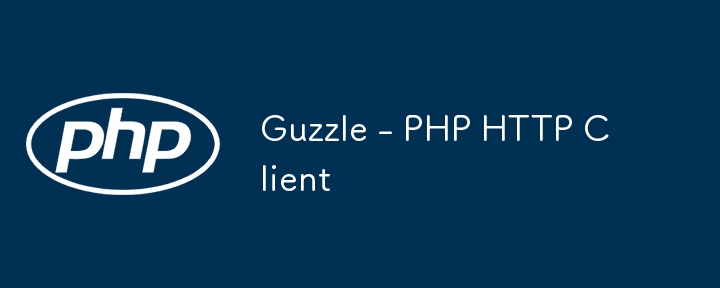 Guzzle - PHP HTTP Client
Guzzle - PHP HTTP Client
22 Feb 2025
Guzzle: Your PHP HTTP Client for Seamless Web Service Integration Key Advantages of Guzzle: Independent and Versatile: Guzzle stands alone as a powerful HTTP client, ideal for fetching data from remote database servers or interacting with third-par
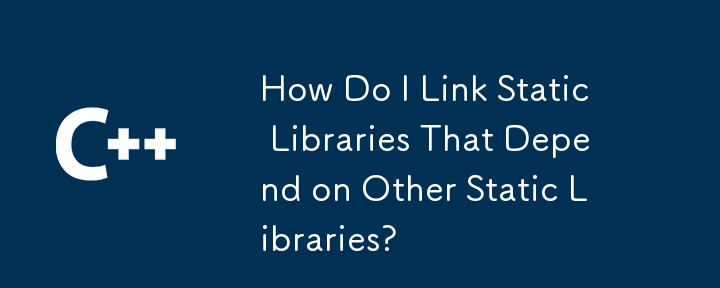 How Do I Link Static Libraries That Depend on Other Static Libraries?
How Do I Link Static Libraries That Depend on Other Static Libraries?
13 Dec 2024
Linking Static Libraries to Other Static Libraries: A Comprehensive ApproachStatic libraries provide a convenient mechanism to package reusable...
 How to Silence TensorFlow\'s Debugging Output?
How to Silence TensorFlow\'s Debugging Output?
28 Oct 2024
Suppression of Tensorflow Debugging OutputTensorflow prints extensive information about loaded libraries, found devices, and other debugging data...
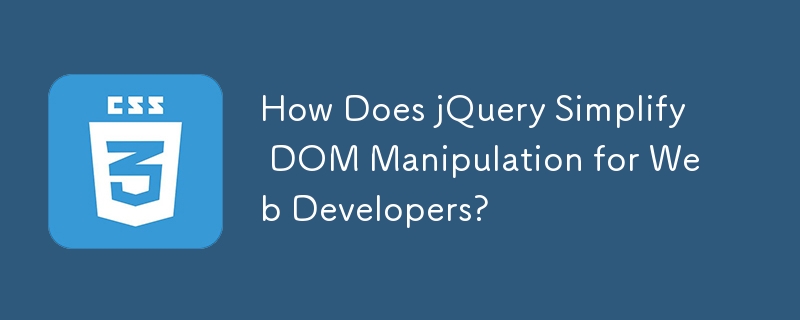 How Does jQuery Simplify DOM Manipulation for Web Developers?
How Does jQuery Simplify DOM Manipulation for Web Developers?
03 Jan 2025
Overflow: Hidden and Expansion of HeightjQuery distinguishes itself from other JavaScript libraries through its cross-platform compatibility and...
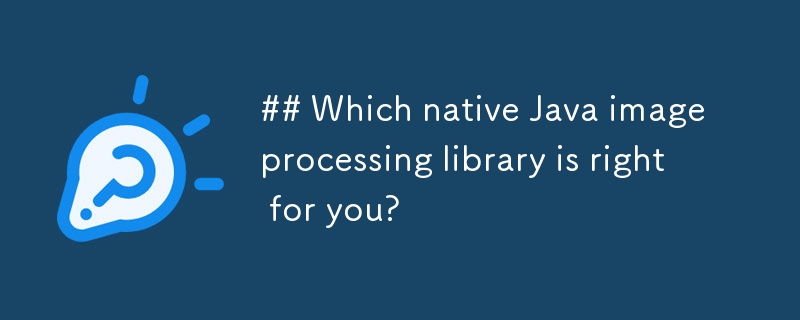 Which native Java image processing library is right for you?
Which native Java image processing library is right for you?
30 Oct 2024
Native Java Image Processing Libraries for High-Quality ResultsAs you have encountered limitations with ImageMagick and JAI, let's explore other...
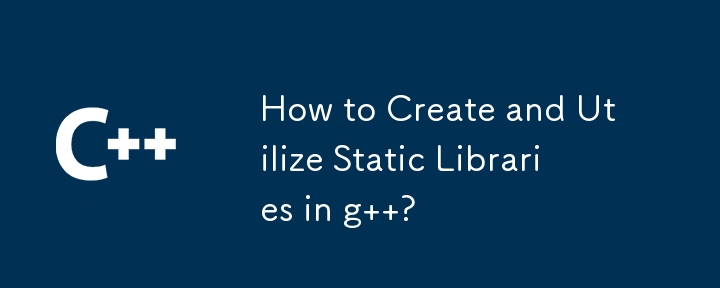 How to Create and Utilize Static Libraries in g ?
How to Create and Utilize Static Libraries in g ?
24 Oct 2024
This article guides developers on crafting static libraries in C using g . It demonstrates how to compile source code into object files, create static libraries, and incorporate them into other projects. By leveraging this approach, developers can


Hot Tools

PHP library for dependency injection containers
PHP library for dependency injection containers

A collection of 50 excellent classic PHP algorithms
Classic PHP algorithm, learn excellent ideas and expand your thinking

Small PHP library for optimizing images
Small PHP library for optimizing images




